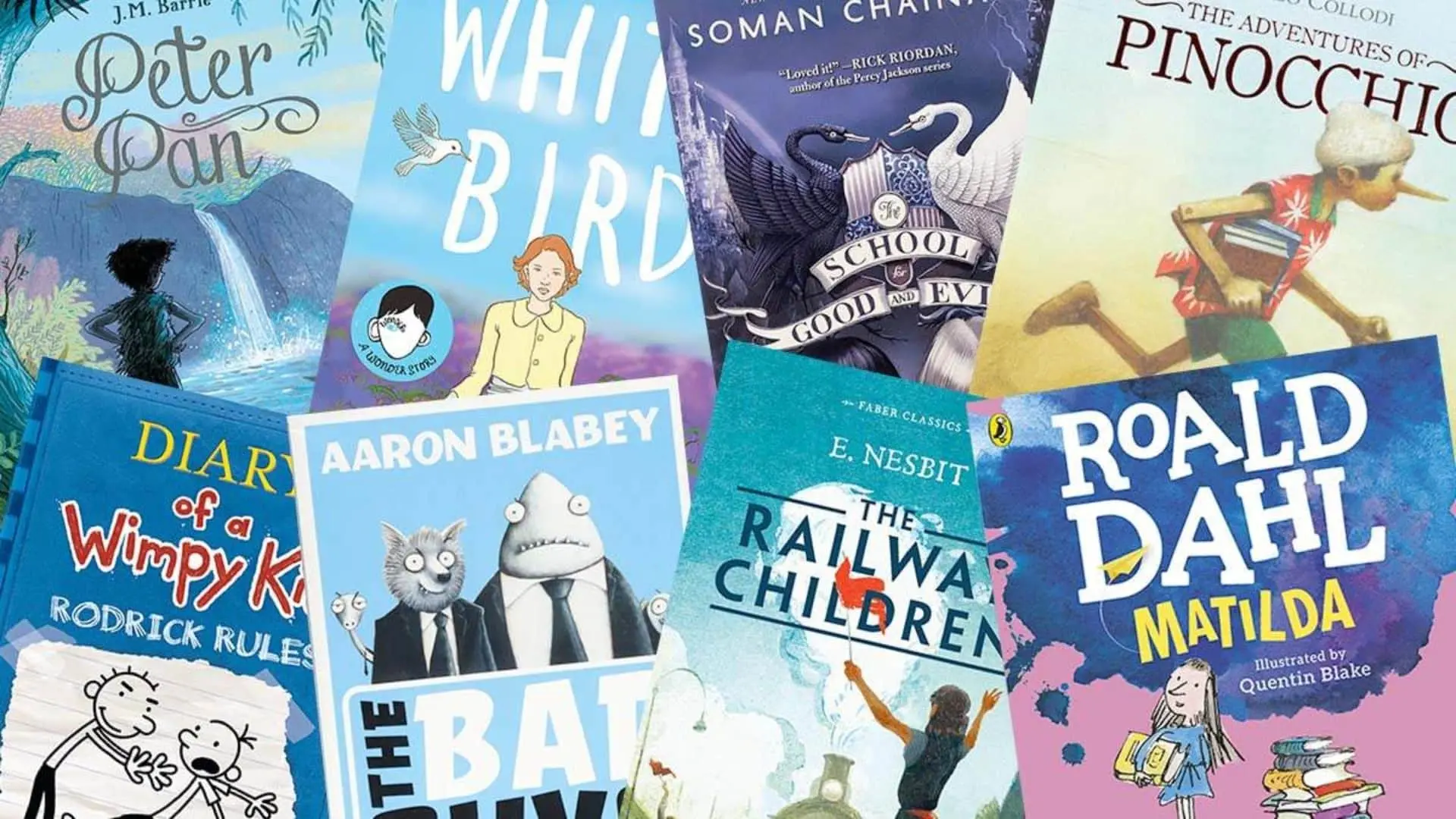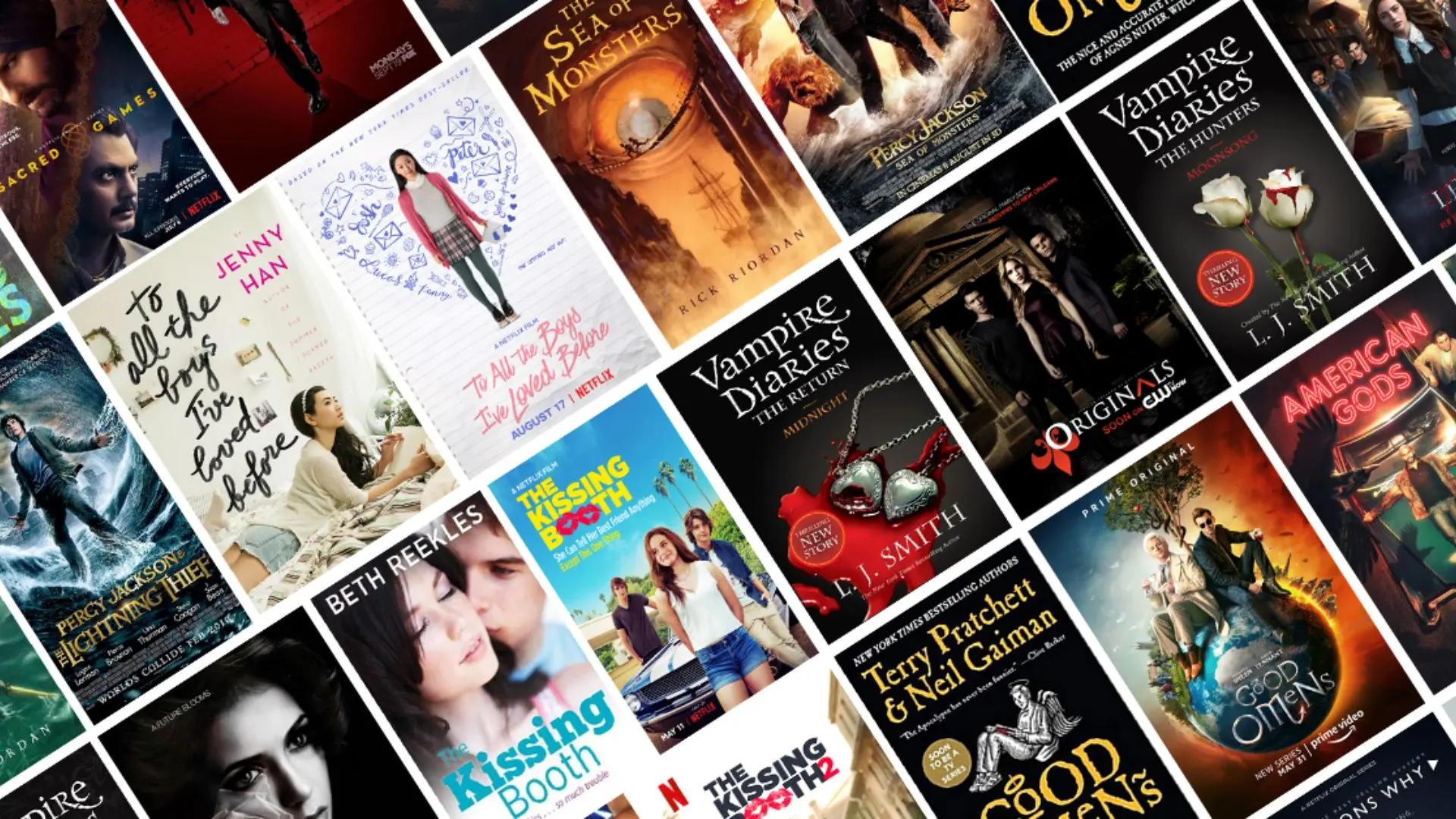If you’re someone who loves a good story, you’ve probably experienced the dilemma: Should you read the book or watch the movie? While both mediums have their own appeal, many die-hard readers will tell you that books are almost always better than their movie adaptations. And you know what? They’re often right.
But why is that the case? Why do people tend to walk out of movie theaters saying, “The book was way better,” or feel a little unsatisfied after watching a film adaptation of their favorite novel? Let’s dive into the reasons, and by the end of this, you might find yourself nodding along and saying, “Yes, Books truly are better!”
Books Offer Depth that Movies Simply Can’t Match
When you read a book, you’re not just getting the surface story; you’re diving deep into the thoughts, emotions, and backstories of characters. Take, for example, J.K. Rowling’s Harry Potter series. In the Books, readers are privy to Harry’s inner struggles, the detailed history of each magical creature, and the political undercurrents of the wizarding world. In contrast, the movie adaptations have a limited run time, often cutting out important scenes and subplots.
You might remember feeling the absence of certain characters like Peeves the poltergeist or important moments, like Hermione’s efforts with S.P.E.W. (Society for the Promotion of Elfish Welfare). These are just a few examples of how a book can paint a broader, more nuanced picture that movies often cannot capture.
Imagination is Unlimited in Books
Movies are limited by budgets, technology, and the creative vision of a director or screenwriter. But with books? Your imagination is the only limit. When you read Tolkien’s The Lord of the Rings, you create your own vision of Middle-earth. Each reader imagines Frodo, Gandalf, and Aragorn in their own unique way, and the settings come alive in your mind, filled with the details that resonate most with you.
In contrast, a movie gives you a fixed interpretation. It’s like being told how to dream. The landscapes, characters, and events are all prepackaged for you, which can stifle the wonder that comes from letting your mind create worlds of its own.
Movies Must Simplify Complex Stories
Another thing you’ve likely noticed is how movie adaptations tend to streamline complex plots. The Game of Thrones TV series, based on George R.R. Martin’s A Song of Ice and Fire, is an excellent example. While the show captured much of the spirit of the books in the early seasons, as it progressed, it became clear that certain elements were either dropped or overly simplified.
In the books, you can get lost in the web of political intrigue, the history of Westeros, and the richly detailed character arcs. But in the show, much of that was cut or truncated to fit within an hour-long episode or a season. The result? Important character motivations and subplots fell to the wayside, leaving some fans disappointed with how certain storylines wrapped up. If you’d read the books, you’d have experienced those complexities firsthand, and it’s safe to say they pack a far more significant punch.

Characters in Books Have More Room to Grow
When you watch a two-hour movie, there’s only so much time for character development. This often leads to characters feeling flat or underdeveloped compared to their literary counterparts. In a novel, the author has the luxury of space—space to flesh out backstories, relationships, and individual quirks.
Take The Hunger Games by Suzanne Collins as an example. In the book, we follow Katniss Everdeen’s thought process intimately. We understand her fear, her reluctance to kill, her moral dilemmas, and her complicated feelings about Peeta and Gale. The movie, while visually stunning, couldn’t quite capture the depth of Katniss’s internal struggles. Sure, Jennifer Lawrence gave a stellar performance, but the book allowed you to feel like you were right there in Katniss’s shoes, battling those demons alongside her.
Books Provide More Time to Dwell on Themes and Messages
Themes in books often get diluted when adapted for the big screen, especially when filmmakers prioritize action or spectacle over nuance. This is particularly evident in classic literature. Think about F. Scott Fitzgerald’s The Great Gatsby. The novel explores themes of the American Dream, social mobility, and the hollowness of wealth in a much more profound way than any film adaptation has managed to convey.
While Baz Luhrmann’s 2013 adaptation was visually dazzling, filled with over-the-top parties and lavish costumes, it focused more on the glitz and glamor than the tragic downfall of Gatsby or the moral decay that underpins the story. The book allows readers to sit with these themes, to dwell on them long after the last page is turned. In contrast, a movie is over in a couple of hours, and with it, the chance to fully process these deeper meanings often fades quickly.
Movies Are at the Mercy of Editing and Pacing
Ever feel like a movie was rushing through a book you loved? You’re not alone. In an effort to keep movies within a reasonable runtime, directors often have to make tough decisions about what stays and what goes. This sometimes results in scenes feeling rushed or important plot points being glossed over.
Consider The Shining by Stephen King. The novel is a slow burn, filled with psychological horror, where the tension builds over time. However, Stanley Kubrick’s adaptation, while considered a masterpiece in its own right, altered the pacing and left out significant parts of the book, like Jack Torrance’s gradual descent into madness. Readers who picked up the book after watching the movie often comment on how much more terrifying the novel is, simply because the pacing allows for a deeper, more lingering sense of dread.
Books Allow for Emotional Connections to Develop Slowly
One of the best parts about reading is how you slowly grow attached to the characters. As you spend hours with them, you come to understand their motivations, desires, and flaws. This slow build-up allows for emotional moments to hit harder when they come.
For example, in The Fault in Our Stars by John Green, the slow unraveling of Hazel and Gus’s relationship allows you to fully invest in their love story. By the time tragedy strikes, you’re deeply connected to their journey, which makes the heartbreak all the more intense. The movie, though well-done, doesn’t quite capture that same emotional depth because it simply doesn’t have the same amount of time to develop these connections.
Books Don’t Have a Budget—They Have Your Imagination
One of the most frustrating things about movie adaptations is when they can’t fully capture the scope of a book because of budget constraints. This often happens with fantasy or sci-fi novels, where entire worlds are built from the ground up.
Think of Eragon by Christopher Paolini. Fans of the book were eager to see dragons, battles, and magical landscapes brought to life on the big screen. But when the movie was released, it felt underwhelming because of the limitations in special effects and the rushed storyline. The world that Paolini so beautifully described in his book just didn’t translate well to film. On the page, there are no limits to what you can imagine—giant dragons, epic battles, or mystical landscapes all come alive as you read.

Books Let You Set the Pace
One of the great joys of reading is that you control the pace. If a scene is particularly tense, you can slow down, absorbing every detail. If you’re racing toward a thrilling climax, you might find yourself speeding up, unable to turn the pages fast enough. With movies, however, you’re on a fixed timeline. You’re at the mercy of the director’s pacing, and if something feels rushed or dragged out, there’s not much you can do about it.
Books Offer Subtlety and Layers That Movies Often Miss
Some of the most beautiful moments in books are the subtle ones—the quiet internal monologues, the unspoken gestures, the details that add layers to a character or a scene. These are often lost in movie adaptations.
In To Kill a Mockingbird by Harper Lee, much of the novel’s impact comes from Scout’s observations of her father, Atticus Finch, and the people in her small town. The subtle tensions between characters, the moments of quiet strength, and the nuanced exploration of morality are difficult to translate to film. As a result, the movie, though powerful, misses some of the depth that made the book so beloved.
Final Thoughts
At the end of the day, both books and movies have their place in the world of storytelling. But when it comes to experiencing the depth, complexity, and emotional resonance of a story, books have the upper hand. They give you the time to connect with characters, the freedom to imagine entire worlds, and the space to dwell on themes and messages in a way that movies simply cannot match.
Also Read: How a Narnia Web Series Could Expand the Chronicles Beyond the Books?









